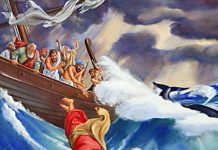A Testimony of Faith: The Story of the Three Massabki Brothers and Enduring Sacrifices
Elias Bejjani/July 10/2025
In the bright pages of history that is filled with faith and sacrifice, shines the story of the three Massabki brothers: Francis, Abdel Moati, and Raphael. In Damascus in 1860, they wrote with their blood a powerful testament to spiritual heroism. These Maronite martyrs, all over sixty years old, refused to abandon their Christian faith despite threats of death. They became living examples of what faith means in Christianity, proving that those who kill the body cannot kill the believing soul. This heroic testimony still resonates today, connected to similar sacrifices recently witnessed in Damascus, such as the bombing of St. Elias Greek Orthodox Church.
The 1860 Massacres and an Unwavering Faith
On the night of July 10, 1860, Damascus saw bloody events targeting Christians. The Massabki brothers, along with many other Christians and Franciscan priests, sought refuge in a church. But the attackers broke in, demanding they change their religion. It was then that the brothers’ strong faith shone through. Francis spoke unforgettable words, showing their courage and resolve: “We don’t fear those who kill the body… Our crown awaits us in heaven, and we have but one soul, which we will not lose. We are Christians and we want to die Christians.”
Francis was a silk merchant known for his good Christian life; he’d never start work without first visiting the church. Abdel Moati had left trade to teach at the Franciscan school, while Raphael helped the brother in charge of the sacristy. This good character and Christian commitment weren’t just outward show; they were deeply rooted in their hearts, allowing them to face death with unshakeable resolve. The three brothers were killed in the church before the altar, their blood becoming a living testament to the power of their faith.
The Meaning of Faith in Christianity: “Whoever Acknowledges Me Before Others”
The story of the Massabki brothers clearly shows what faith means in Christianity. In Christianity, faith isn’t just believing intellectually that God exists. It’s a complete and total trust in God, involving surrender to His will, obedience to His commands, and a readiness to sacrifice for Him. It’s a living, personal relationship with God, built on love and hope.
The Bible verse: “Whoever acknowledges me before others, I will also acknowledge before my Father in heaven. But whoever disowns me before others, I will disown before my Father in heaven” (Matthew 10:32-33), highlights the importance of publicly declaring one’s faith. Acknowledging Christ isn’t just words; it’s a way of life—a willingness to face challenges and persecution for the truth. This verse emphasizes a core principle: eternal life is the fruit of this confessed faith, and witnessing for Christ in this world is the key to being acknowledged by God in heaven.
Another important verse: “Do not be afraid of those who kill the body but cannot kill the soul. Rather, be afraid of the One who can destroy both soul and body in hell” (Matthew 10:28), points to the truth that physical death cannot end spiritual life. For believers, physical death is a doorway to eternal life with Christ. The Massabki brothers deeply understood this, so they didn’t fear death; instead, they saw it as a path to the crown prepared for them in heaven.
The Continuation of Sacrifice: From the 1860 Massacres to the St. Elias Church Bombing
Tragic events, such as the bombing of St. Elias Greek Orthodox Church in Damascus, show that the spirit of persecution for faith has not ended with time. Despite the significant time gap between the martyrdom of the Massabki brothers and this horrific crime, there are strong and deep-rooted connections between them:
Sacred Space as a Target: The Massabki brothers were martyred inside a church. The same occurred at St. Elias Church, where terrorists stormed the building while worshippers were inside, and one detonated an explosive belt, killing and injuring dozens, including children, elderly, and women. In both incidents, a house of God was turned into a scene of brutal violence against believers.
Targeted Because of Faith
The Massabki brothers paid the ultimate price for refusing to abandon their faith. In the St. Elias Church bombing, the targets were Christian worshippers gathered for prayer, confirming that the primary motive behind the attack was to target the Christian faith itself. Both crimes aimed to terrorize Christians and force them to abandon their religious identity.
Continuous Witness
The victims of St. Elias Church, like the Massabki brothers, made the ultimate sacrifice. They became martyrs for their faith, not necessarily for verbally refusing to deny Christ, but because they were killed for being Christians exercising their right to worship. This embodies the profound meaning of the verse: “Do not be afraid of those who kill the body,” for despite the killing and destruction, faith remains alive and triumphant. Connected History of Persecution: What happened at St. Elias Church reminds us of the persecutions that occurred in 1860 and others throughout history. It confirms that Christian communities in the region continue to face existential challenges that demand steadfastness and resilience in the face of violence and extremism.
Ecclesiastical Honor: Saints on the Altar of God
In recognition of their heroic sacrifice, the Catholic Church beatified the three Massabki brothers. On October 10, 1926, Pope Pius XI declared their beatification. Then, on October 20, 2024, Pope Francis declared them saints, placing them on the altar of God.
Today, the Lebanese Maronite Church, along with the entire Catholic Church, remembers the testimony of these brothers who never abandoned Christ or their faith in Him. They accepted martyrdom because of their unwavering belief. Their remains are still kept in the Maronite church in Damascus, serving as a lasting reminder of their sacrifice and unshakeable faith.
The story of the three Massabki brothers, and the sacrifices of the martyrs of St. Elias Church, call every believer to reflect on the meaning of true faith and to be ready to bear witness to Christ in all circumstances, understanding that the believing soul is stronger than any attempt to destroy it. These stories highlight that faith is not just a belief, but a life lived and sacrificed for.





















